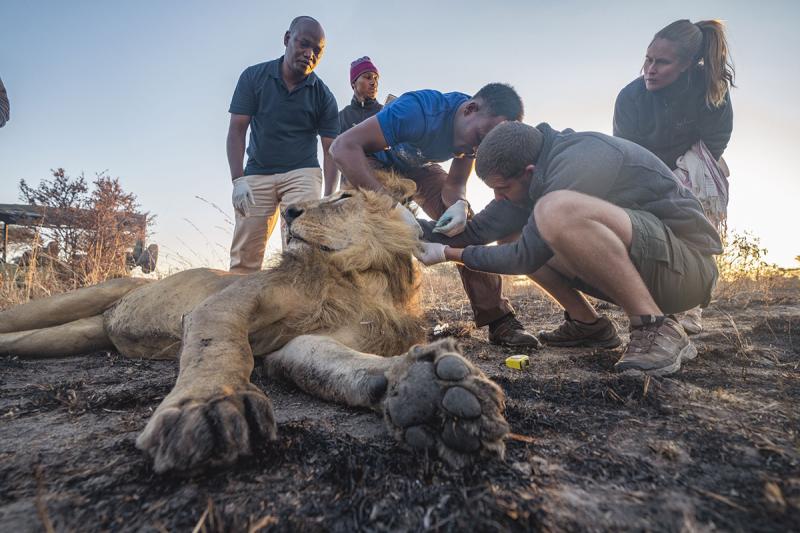Go2Africa has released its "2024 State of Safari Report," which provides an in-depth analysis of emerging trends in African travel and offers valuable insights into traveler preferences, booking patterns and the evolving safari landscape. In its third edition, Go2Africa—a Cape Town, South Africa-based travel outfitter—explored the state of safari, identifying new travel preferences, consumer booking habits and the surprising destinations in demand as it reflects on data from 2022 to 2024. Go2Africa also analyzed Google search data to uncover emerging trends in major safari destinations in Africa.
Key findings from 2024 include:
Extended peak travel season: June, September and October are becoming increasingly popular travel months, signaling an extension of the traditional high season. July remains the top month for safari trips, driven by the Great Migration and optimal wildlife viewing opportunities.
South Africa remains the most popular destination: Despite a slight year-on-year decline in inquiries, South Africa continues to attract the highest number of safari travelers. Tanzania and Kenya round out the top three, accounting for 60 percent of total interest.
Island destinations on the rise: Interest in Seychelles and Mauritius grew significantly, while travel to Madagascar and Malawi more than doubled compared to 2023. Improved flight connectivity is playing a major role in boosting these destinations.
Shift toward multi-destination safaris: While single-destination safaris remain dominant, interest in multi-country itineraries continues to grow. In 2024, 34 percent of travelers opted for multi-destination safaris, up from 29 percent in 2022.
Demand for impactful and experiential travel: Travelers are prioritizing conservation-focused experiences, immersive cultural encounters and off-the-grid destinations. There is a growing desire to actively participate in conservation efforts, particularly in locations such as Zambia’s Kafue and Tanzania’s Usangu.
Rise of family safaris: More families and multi-generational groups are opting for safari vacations, leading to increased demand for child-friendly lodges, interactive wildlife experiences and tailored itineraries.
Longer booking windows and higher budgets: Travelers are booking further in advance, with the average lead time increasing from 18 to 19 weeks. Additionally, medium-high budgets have grown from 36 percent to 59 percent, reflecting a preference for premium experiences and longer stays.

Though July and August are known to be the peak travel season due to prime travel conditions and the Great Migration, there was a rise in the number of people traveling in June, September and October. Due to better rates and fewer crowds, there has been an increased interest in April and May. Go2Africa highly recommends booking at least one year in advance as the peak season broadens.
Travelers booking at least 10-day trips account for 36 percent of inquiries, and bookings for less than seven days have dropped by 40 percent year-over-year. There has been an increase in desire for premium experiences, longer trips and an increased cost of a safari, causing the average budget to increase in 2024 from $5,500 to $7,500, whereas in 2023, the average range was $5,500 to $6,500.
The top spending countries in 2024 were Lithuania, Mexico and Norfolk Island. In 2023, the U.S. was number four; this year, it was not on the top 10 list. That said, the U.S. leads in safari inquiries worldwide, with Canada and Australia following, making up 70 percent of inquiries in 2024.
Predictions for 2025
The report forecasts continued growth in sustainability-driven travel and a rise in family safaris. Additionally, with an increase in non-specialist operators entering the safari space, the value of expert planning has never been more critical.
Based on last year’s trends, there has been a significant increase in emerging destinations, a growing focus on sustainability and an upsurge in spending habits. Family safaris are growing in popularity, with lodges offering specialized activities that foster a deeper connection with nature. Safari-goers in 2025 are seeking conservation-focused experiences, off-the-grid destinations and combining adventure trips with high-end wellness and culinary offerings. Conservation projects are gaining momentum as travelers request hands-on conservation activities and lodges prioritize electric vehicles and solar power.
Trending Destinations for 2025
For 2025, Go2Africa has seen a shift away from classic itineraries like Kruger and Victoria Falls, with more interest in hidden gems like Zambia’s Kafue, Ruaha’s Usangu, the Seychelles’ Platte Island, Zimbabwe’s Matusadona and Lake Malawi. More travelers are interested in adding gorilla trekking to their standard "Big Five" safari experience, and bookings in Rwanda and Uganda have more than doubled this year.
New five-star lodges have also opened or are slated to open. Among them is Asilia’s Erebero Hills, scheduled to open in 2026 and Volcanoes Safaris Kibale Lodge, which opened in July 2024. Inquiries for island destinations to complement a safari experience have risen by 71 percent in popularity to destinations like Seychelles and Mauritius. While single-destination safaris still dominate, multi-country safaris have grown in popularity, rising 29 percent in 2022 and 34 percent consistently in 2023 and 2024, thanks to increased connectivity, making cross-border travel more readily available.
Source: Go2Africa
Related Stories
Yellow Zebra Launches New “Big Cat” Itineraries
Virgin Limited Edition Announces New Property in Kenya
African Travel Shares Ethical Wildlife Practices for Travelers